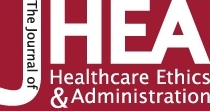Back Issue: Vol.5 No.1 (Fall/Winter 2019)
ISSN 2474-2309
Research Ethics
- Omobola Awosika Oyeleye, Ed D, J.D., M.Ed, MSN, RN-BC, CNE, CHSE, CPHQ
Address correspondence to: Omobola Awosika Oyeleye, Ed D, J.D., M.Ed, MSN, RN-BC, CNE, CHSE, CPHQ. Cizik Shool of Nursing, 6901 Bertner Avenue, Room743, Houston, TX 77030, U.S.A. Email: omobola.a.oyeleye@uth.tmc.edu
Pages: 1-6
The article discusses the implications of the actions of health care professionals who engage in unethical conduct for altruistic purposes or for pecuniary gain. It analyzes the highly publicized news story where parents allegedly paid a lot of money to get their children admitted to colleges, including engaging the services of psychologists who created fake diagnoses of learning disabilities. It explores earlier unethical acts by healthcare professionals like physicians in Wisconsin who wrote work excuse notes for Wisconsin teachers, without any physician/patient relationship or assessments, and dentists and nurses who violated their professional ethical principles. Also discussed, is the impact of such acts on the respective professions and the potential impact on unseen victims like individuals with disabilities. The universality of the impact and the need for communal vigilance are highlighted.
- Evangel Sarwar, Ph.D., MPH, HEC-C
Address correspondence to: Evangel Sarwar. MPH, Ph.D.,HEC-C. Department of Health Science & Human Ecology, California State University, San Bernardino. Email: evangel.sarwar@gmail.com
Pages: 7-21
Adequate food consumption is essential to stay alive. However, overconsumption and consumption of nutritionally deficient food can increase risks of obesity that negatively impacts health; ultimately leading to more expensive medical treatments, reduced quality of life, and early death – making it a public health issue. The World Health Organization (WHO) notes there is an increase in the prevalence of infant, childhood and adolescent obesity, and this is alarming because obesity can affect a child’s immediate health, educational attainment, and quality of life. Overweight children are likely to be obese as an adult and consequently be at risk for various chronic illnesses. The prevalence of severe obesity in the United States has alarmingly increased among children, and research suggests that approximately 90% of children with severe obesity will become obese adults depending on the age at which these children became obese. This only shows that obesity is a precursor for a far more significant public health crisis that is about to explode with time. Moreover, obesity is also associated with the development of psychosocial implications such as diminished self-esteem and self-worth as a result of associated social and peer stigma. According to experts, the focus on childhood obesity should be on prevention rather than on the treatment of obesity. Even though obesity has been identified as the overconsumption of calorically dense and high-fat foods and inadequate physical activity, there is a socioeconomic dimension to the obesity crisis. This raises ethical questions regarding the role of government in implementing policies to eliminate obesity. To address obesity, it is better to understand it at the community level. Better policies that address the socioeconomic issues and environmental factors that fuel the obesity epidemic are needed – with that in mind; this paper aims to target these issues at the community and policy level.
- Evangel Sarwar, Ph.D., MPH, HEC-C
Address correspondence to: Evangel Sarwar. MPH, Ph.D.,HEC-C. Department of Health Science & Human Ecology, California State University, San Bernardino. Email: evangel.sarwar@gmail.com
Pages: 22-35
The phenomenal growth of the global pharmaceutical sales, which exceeded $US one trillion in revenues in 2014 alone, has resulted in the growing ethical concerns associated with the need for the unprecedented search for human test subjects to participate in clinical drug trials – particularly in middle and low-income countries – and concerns about possible exploitation. While this expansion has provided access to vital medical resources that would have otherwise been unattainable for this population – this outsourcing also created problems which may be termed as exploitation – such as faulty trials at times, and manipulation of data about the benefits and risks of the drugs being tested on the populations in developing countries. Although the United States and European countries have sponsored much biomedical research in developing countries, they considered their work done once the trials concluded, and this has been criticized and termed as “safari research,” – which is a form of exploitation of developing countries and their populations from which research subjects are recruited. These trials do not address the needs of the developing countries and contribute to the exploitation of some of the most “vulnerable” populations. It is unethical to enter a country, set up facilities for research then leave with the healthcare personnel and equipment after giving hope to its people of some form of benefit. Several historical events have led to the awareness of the need for protecting research subjects. There is a need for a better understanding of what constitutes as exploitations, to ensure researchers make ethical decisions with planning and implementation of research involving research participants. The paper looks at the ethical issues and their importance in international research, and the double standards that are of growing concern in profit-driven research in low-income countries by developed sponsor countries, while also making recommendations for preventing exploitations.
